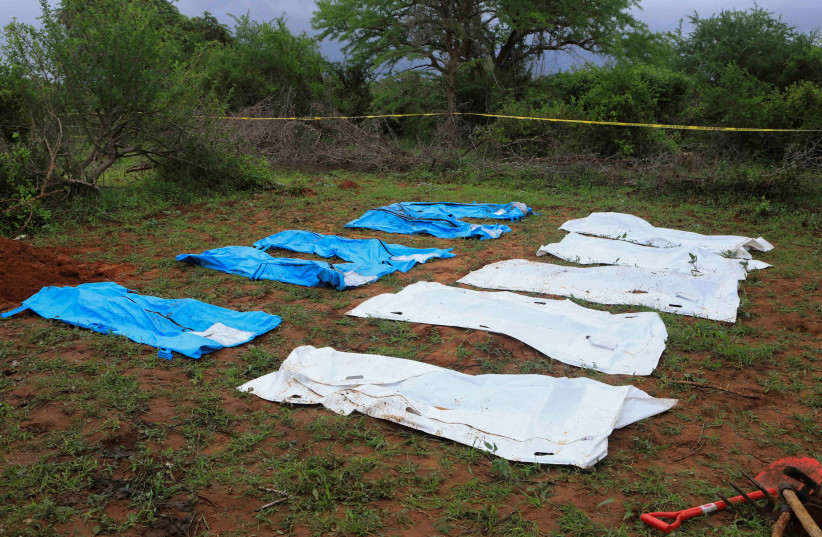Kenyan police have recovered 73 bodies, mostly from mass graves in a forest in eastern Kenya, thought to be followers of a Christian cult who believed they would go to heaven if they starved themselves, a police officer said on Monday.
The death toll, which has repeatedly risen as exhumations have been carried out, could rise further. The Kenyan Red Cross said 112 people have been reported missing to a tracing and counseling desk it has set up at a local hospital.
Followers of the self-proclaimed Good News International Church had been living in several secluded settlements in an 800-acre area within the Shakahola forest.
Kenya's Inspector General of Police Japhet Koome, visiting the scene, said the death toll included 50 people found in mass graves as well as eight who were found alive and emaciated but later died.
He added that 29 survivors had been rescued and police were still searching for potential others.

"Forensic investigators, homicide detectives, other police officers as well as some government pathologists are here with us conducting investigations and carrying out exhumations," said Koome in remarks broadcast on Kenyan television.
The cult's leader
The cult's leader, Paul Mackenzie, was arrested on April 14 following a tip-off that suggested the existence of shallow graves containing the bodies of at least 31 of his followers. Koome said 14 other cult members were in police custody.
Mackenzie was arraigned on April 15 at Malindi Law Courts, where the judge gave police 14 days to conduct investigations while he was kept in detention. Kenyan media have reported that he is refusing food and water.
Reuters was not able to reach any lawyer or representative for Mackenzie.
President William Ruto said Mackenzie's teachings were contrary to any authentic religion.
"Mr Mackenzie ... pretends and postures as a pastor when in fact he is a terrible criminal," said Ruto, who was delivering a speech at an unrelated public event just outside Nairobi.
He said he had instructed relevant agencies to get to the root cause of what had happened and to tackle "people who want to use religion to advance weird, unacceptable ideology in the Republic of Kenya that is causing unnecessary loss of life."
